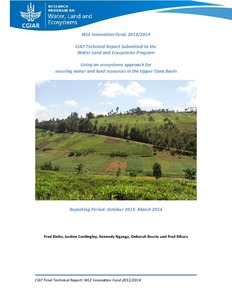Location
The International Water Management Institute (IWMI) is a non-profit, scientific research organization focusing on the sustainable use of water and land resources in developing countries. It is headquartered in Colombo, Sri Lanka, with regional offices across Asia and Africa. IWMI works in partnership with governments, civil society and the private sector to develop scalable agricultural water management solutions that have a real impact on poverty reduction, food security and ecosystem health. IWMI is a member of CGIAR, a global research partnership for a food-secure future.
IWMI’s Mission is to provide evidence-based solutions to sustainably manage water and land resources for food security, people’s livelihoods and the environment.
IWMI’s Vision, as reflected in the Strategy 2014-2018, is ‘a water-secure world’. IWMI targets water and land management challenges faced by poor communities in the developing countries, and through this contributes towards the achievement of the United Nations Millennium Development Goals (MDGs) of reducing poverty and hunger, and maintaining a sustainable environment. These are also the goals of CGIAR.
IWMI works through collaborative research with many partners in the North and South, and targets policymakers, development agencies, individual farmers and private sector organizations.
Resources
Displaying 206 - 210 of 959WLE Innovation Fund, 2013/2014: using an ecosystems approach for securing water and land resources in the upper Tana basin
Wetlands and people
Resource entitlement and welfare among resettlers in the dry forest frontiers of northwestern Ethiopia.
Advancing the water-energy-food nexus: social networks and institutional interplay in the blue Nile
Shifting to hydrological/hydrographic boundaries: a comparative assessment of national policy implementation in the Zerafshan and Ferghana Valleys
In the literature on the implementation of national policies there is an assumption that these get implemented uniformly within one country. Here, with a focus on the implementation of national policy on shifting from administrative to hydrological/ hydrographic principles of water management in the Zerafshan Valley and the Ferghana Valley in Uzbekistan, this assumption is questioned. The case study demonstrates that national policies are resisted by lower-level bureaucrats, leading to diverse, even contradictory, outcomes of the same policy.






